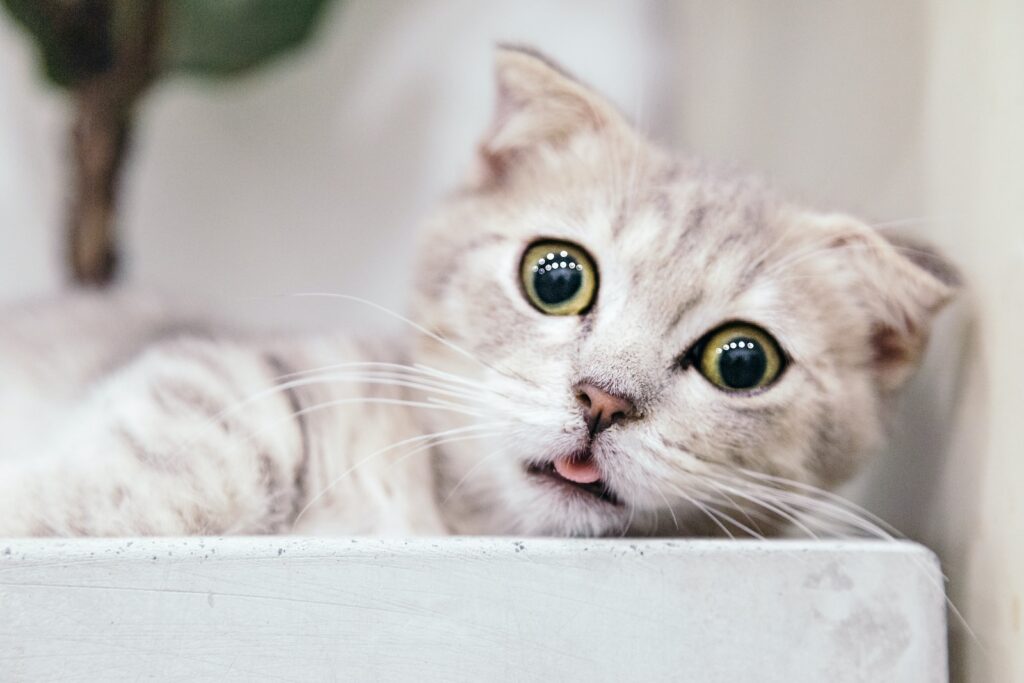Can Cats Eat Cheese? — Yes, They Can
Cheese can be safe for cats to eat in small quantities. Cats are obligate carnivores, which means their diet should primarily consist of meat. While cheese is not a natural part of a cat’s diet, it can be given as an occasional treat. However, it is important to note that some cats may be lactose intolerant, so it’s best to introduce cheese gradually and monitor their reaction.
Can Kittens Eat Cheese?
Just like adult cats, kittens can eat cheese in moderation. However, since their digestive systems are still developing, it’s crucial to offer small amounts and observe their response. Kittens should primarily be fed a balanced diet formulated specifically for their nutritional needs to ensure healthy growth and development.
Things to consider when feeding cheese to kittens?
When feeding cheese to kittens, it’s essential to be mindful of their tolerance and overall health. Start with a tiny amount and monitor for any signs of digestive upset, such as diarrhea or vomiting. If any negative reactions occur, it’s best to avoid feeding them cheese in the future.
Nutritional Benefits of Cheese for Cats — Why Cheese is Good for Cats?
Calcium and Phosphorus
Cheese is a good source of calcium and phosphorus, which are essential for maintaining strong bones and teeth in cats. These minerals contribute to proper muscle function and nerve transmission as well.
Protein
Cheese contains protein, which is necessary for muscle growth, repair, and overall health in cats. However, it’s important to remember that cats need a primarily meat-based protein source, so cheese should only be given as a supplemental treat.
Vitamins
Cheese provides certain vitamins, such as vitamin A and B vitamins, which play a crucial role in a cat’s overall well-being. These vitamins support healthy vision, skin, and coat, as well as proper metabolic function.
Taste and Enrichment
Cheese can be a tasty and enriching treat for cats, providing sensory stimulation and variety in their diet. It can be used as a reward during training or a way to add some excitement to their mealtime routines.
Potential Allergies: Can Cats Be Allergic to Cheese?
Cats can develop allergies to different food items, including cheese. Allergies occur when a cat’s immune system overreacts to certain proteins found in the food. While cheese allergies are not very common in cats, individual sensitivities can vary. It’s important to monitor your cat for any potential allergic reactions when introducing cheese into their diet.
Symptoms of Cheese Allergies in Cats
- Hives or skin rash
- Itching or excessive grooming
- Vomiting or diarrhea
- Swelling of the face, ears, or paws
- Difficulty breathing
What to Do If Your Cat Shows Symptoms?
- If you suspect your cat is allergic to cheese, consult your veterinarian for a proper diagnosis.
- Based on their recommendation, eliminate cheese from their diet and observe if the symptoms subside.
- If the symptoms persist or worsen, your vet may suggest allergy testing or alternative dietary options.
Recommended Amount: How Much Cheese Can a Cat Consume?
While cheese can be a treat for cats, it should only be given in small quantities. A cat’s diet should primarily consist of high-quality, balanced cat food that meets all their nutritional requirements. As an occasional indulgence, a small cube or a thin slice of cheese can be offered. It’s important not to exceed the recommended amount to prevent digestive issues or weight gain.
Things to Consider When Feeding Cheese to Cats
When feeding cheese to cats, it’s important to consider the following:
- Cheese should not replace a balanced diet formulated specifically for cats.
- Some cats may be lactose intolerant, and feeding them cheese can lead to digestive upset.
- Offer cheese in small, manageable portions to prevent overindulgence.
- Monitor your cat’s weight and overall health to ensure they maintain a healthy body condition.
How to Feed Cheese to Cats: A Quick Guide
Cheese can be fed to cats in various ways to make it a delightful treat. Here are a few ideas:
Cheese Cube Surprise
Cut a small cube of cat-safe cheese, such as cheddar or Swiss, and hide it in your cat’s interactive toy or puzzle feeder. This will keep them mentally stimulated and reward them with a tasty surprise.
Cheesy Sprinkle
Grate a tiny amount of cheese over your cat’s regular food to add a sprinkle of flavor and excitement. Be sure not to overpower their meal with cheese.
Cheese Pouch
Create a cheese pouch by folding a small piece of cheese inside a cat-safe, edible wrap, like freeze-dried chicken or turkey. This way, your cat can enjoy the cheesy goodness while getting some extra protein.
Conclusion
While cats can eat cheese, it should be given in moderation and as an occasional treat. Remember, a cat’s diet should primarily consist of meat-based, nutritionally balanced food that fulfills their specific dietary needs. If you choose to give your cat cheese, monitor their reaction, and ensure it doesn’t replace their regular diet. Always consult your veterinarian if you have any concerns about your cat’s diet or potential allergies.






